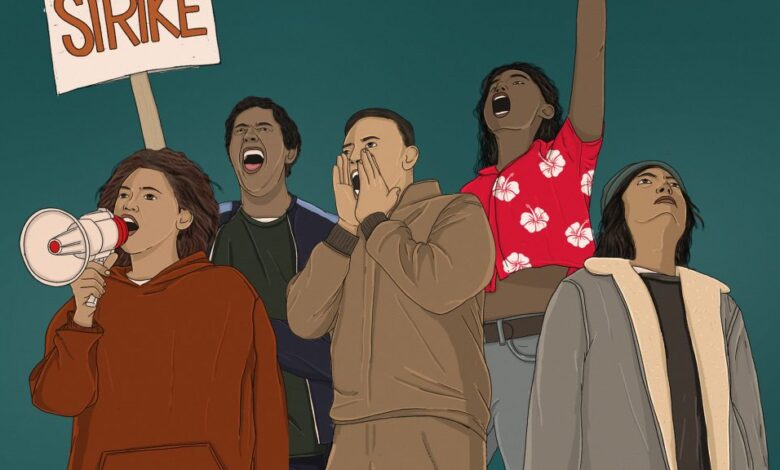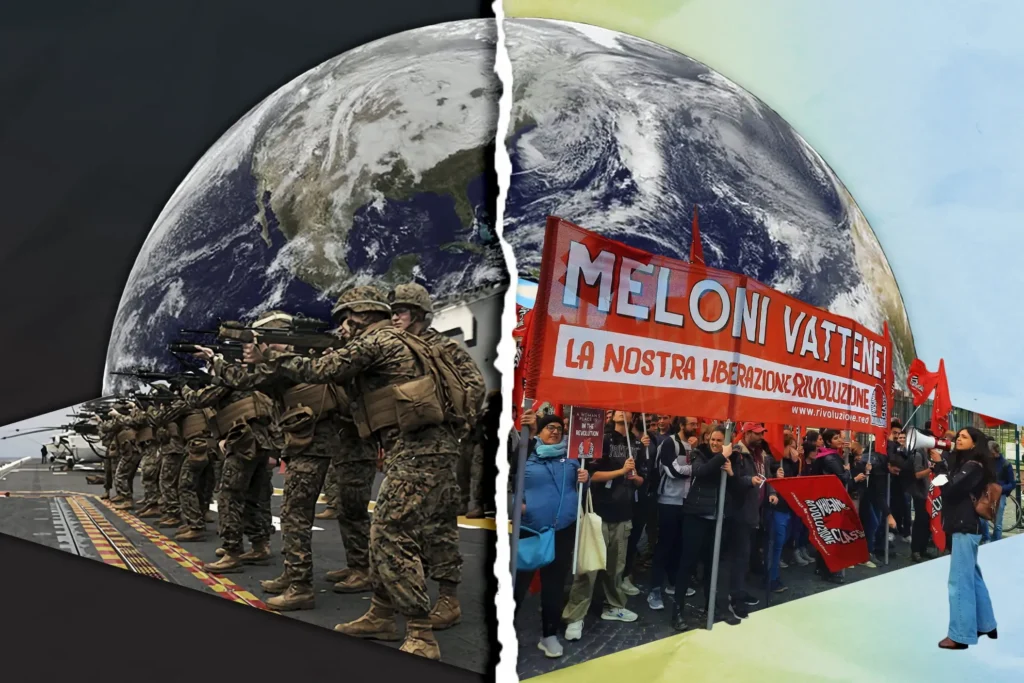The Threat of War and the Struggle of Socialism: A Closer Look at the Challenges We Face Today

The Threat of War and the Struggle of Socialism are issues that many countries are facing in today’s world. As tensions rise between powerful nations, people are questioning how these threats impact their societies. Some believe that war could lead to major changes in the way we live, while others focus on how socialism aims to help create a fairer and more equal society.
In this post, we will explore how the threat of war and the struggle of socialism are connected. While some see war as a way to control power and resources, others argue that socialism is the key to solving many social problems. Understanding both of these challenges is important as we think about the future of our world.
Understanding the Threat of War and the Struggle of Socialism
The threat of war and the struggle of socialism are challenges that have impacted countries throughout history. Today, the risk of conflicts between nations continues to grow, while the debate about socialism as a solution to social inequality remains relevant. War can disrupt societies, creating destruction and loss, while socialism strives to create a more equal world for everyone.
These two issues are deeply connected because war can sometimes arise from the inequalities that socialism tries to address. In many parts of the world, people struggle with poverty and unfair treatment, and socialism offers a way to share resources more fairly. Understanding both the threat of war and the struggle of socialism is important to figuring out how to build a peaceful and just world.
How the Threat of War Affects Global Peace and Social Systems

The threat of war affects global peace by creating fear and uncertainty. Countries that face the possibility of conflict may invest heavily in weapons and military forces. This can drain resources that could be used to improve people’s lives. When nations focus on preparing for war, it can prevent them from addressing problems like poverty or lack of healthcare.
- War can change the balance of power in the world.
- Countries may spend too much money on defense, instead of helping their citizens.
- The threat of war can lead to more conflict and less cooperation between countries.
In the same way, the struggle of socialism challenges how wealth is distributed in society. Socialism promotes a fairer system where wealth is shared more equally. This can sometimes clash with governments that prefer to keep power in the hands of a few, making it harder to achieve peace.
The Role of Socialism in Addressing the Threat of War
Socialism offers solutions to the threat of war by focusing on social equality. When people have access to basic needs like food, healthcare, and education, they are less likely to feel desperate or resort to violence. Socialism works to address the root causes of conflict by promoting fairness and reducing the gap between rich and poor.
By supporting policies that redistribute wealth, socialism helps create societies where the focus is on cooperation, not conflict. However, some argue that socialism can also create challenges when governments take too much control over resources. It is important to find a balance that supports both social justice and peace.
Socialism and War: Two Sides of the Same Coin
Many believe that the threat of war and socialism are connected in ways that can shape the future of societies. While socialism promotes fairness, war often results from the failure to address inequality. Some countries have turned to war when they feel threatened by other nations or when their resources are threatened.
- Socialism focuses on equality to prevent conflicts.
- War often comes from power struggles and inequality.
- Both have global impacts on how countries relate to each other.
By looking at history, we can see how nations that fail to address the needs of their people often find themselves in conflicts. On the other hand, countries that adopt socialist principles of fairness and resource sharing may be able to avoid such conflicts and reduce the threat of war.
The Economic Impact of the Threat of War and Socialism

War and socialism both have significant effects on the economy. War often leads to large spending on military efforts, which can drain resources away from social programs. This spending can also harm businesses and jobs, leading to economic downturns. On the other hand, socialism focuses on economic equality, aiming to distribute wealth more fairly among the people.
How War Affects Economic Growth:
- Countries at war may face economic recessions.
- Resources go into military spending rather than social programs.
- War can disrupt global trade and increase unemployment.
How Socialism Affects Economic Growth:
- Socialist systems focus on providing for everyone equally.
- It can reduce poverty and provide better access to services.
- Some argue that too much government control can harm economic freedom.
In the long run, nations that focus on fairness and equality may experience more stable economic growth, while those caught in conflict may struggle with rebuilding their economies.
Conclusion
In conclusion, the threat of war and the struggle of socialism are important topics to think about. While war can bring destruction and hurt societies, socialism tries to create fairness and equality for everyone. By focusing on sharing resources and helping those in need, socialism can reduce some of the reasons for conflict. But, war often makes it harder to focus on these peaceful solutions.
It is important for countries to work together to avoid war and support social systems that help all people. When societies focus on fairness and helping each other, the chance of conflict goes down. Understanding both the threat of war and the role of socialism can help us create a better, more peaceful world for everyone.
